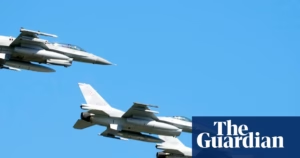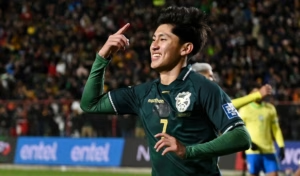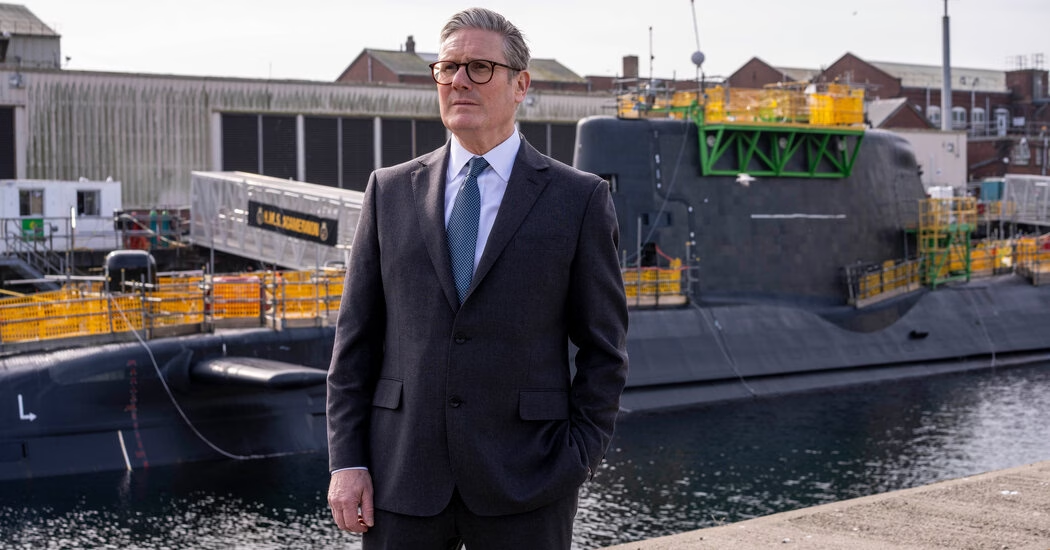A sharp horn blast resonated in the H.M.S. Vanguard control room, prompting the crew of the nuclear-equipped Royal Navy submarine to transition to battle readiness. The commanding officer’s voice crackled across the intercom, instructing them to prepare a set of ballistic missiles for launch.
Although this was merely a drill for a visiting VIP, Prime Minister Keir Starmer, it was a crucial moment for him. As the sole person in the United Kingdom authorized to order a nuclear strike, he paid special attention to the submarine’s launch key storage location.
Inquiring about the ideal conditions for missile launch, Starmer leaned forward in the captain’s chair, the glow of the control screens reflecting in his glasses as the captain explained the process of positioning the Vanguard for a Trident missile launch.
Reflecting on the submarine’s mission after a 32-foot climb to the deck, Starmer recognized its almost seven-month-long mission to deter a nuclear confrontation with Russia, asserting that these vessels symbolize Britain’s commitment to NATO.
After departing the submarine, Starmer noted its peacekeeping presence in the Atlantic for the past 55 years. He spoke about its importance, especially amid criticism of Europe’s defense capabilities from President Trump, and affirmed Britain’s commitment to NATO through these powerful submarines.
The soothing clouds outside the tugboat didn’t alter Starmer’s focus on Europe’s fragile security situation. He pledged to treat the growing threats as an opportunity to galvanize Europe and strengthen the NATO alliance, referencing Churchill and Attlee as examples of Britain’s vital role in a fractured Western world.
Starmer strongly opposed choosing between the U.S. and Europe, aligning with Churchill and Attlee. He acknowledged Trump’s point regarding European nations’ contribution to collective defense, but emphasized the importance of a unified stance against global threats.
Starmer stressed the urgency of assembling a multinational military force for Ukraine’s security after any peace settlement. He plans to engage in negotiations with Putin, but faces significant challenges, including opposition from Russia and unresolved security guarantees from the U.S.
Starmer is determined to convince Trump of NATO’s value. Despite their differences, he has cultivated a rapport with the U.S. President, maintaining open communication channels to align global security efforts.
Starmer, an unassuming diplomat, has cultivated a positive relationship with Trump, despite their extreme differences. He views their rapport as crucial for enacting global security policies.
In an effort to broker peace, Starmer acted as a mediator between Ukraine and the U.S., promoting understanding and cooperation. However, analysts note that Brexit limits Britain’s role in European defense, even as Starmer works to reclaim Britain’s diplomatic presence.
Starmer’s leadership faces challenges at home, including economic struggles and public backlash, which threaten to overshadow his diplomatic achievements. He has pledged to increase defense spending, but faces budgetary hurdles.
Starmer remains committed to bolstering Britain’s defense capabilities, recognizing the end of the peace dividend era. He emphasized the importance of immediate action to address future threats while avoiding alarmism.
Starmer’s visit to lay the foundation for new ballistic missile submarines highlighted Britain’s military strength, but also revealed the aging state of its current fleet. He vowed to enhance Britain’s naval capabilities to prevent such strain on its forces in the future.
Starmer’s resolve to improve British military capabilities was further strengthened by the trials faced by the Vanguard crew during its extended patrol. He committed to ensuring that his efforts prevent such hardship for the sailors in future operations.
Source: https://www.nytimes.com/2025/03/23/world/europe/keir-starmer-trump-interview-uk.html
Like this:
Like Loading...




